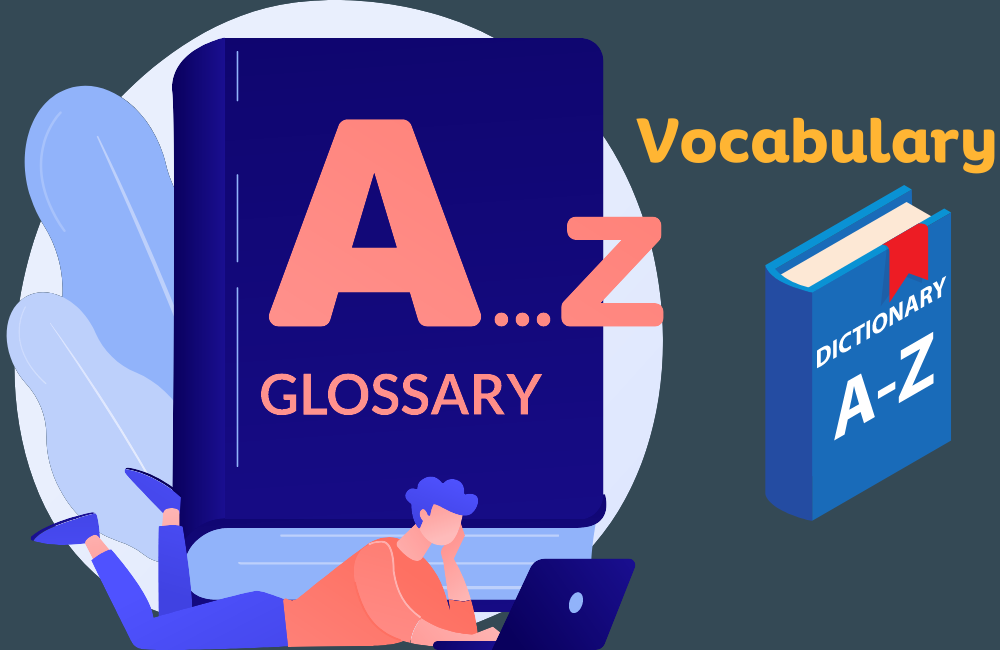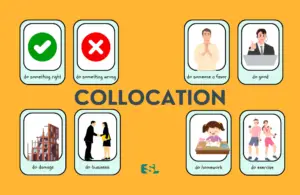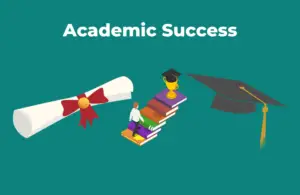Whether you’re an aspiring writer, a student, or someone who wants to improve communication skills, enhancing your word bank is crucial. In this article, I’ll share some effective strategies to help you develop a robust vocabulary. I aim to simplify the process and ensure that these methods can be easily implemented, regardless of your learning style.
Building a rich vocabulary involves immersive reading across diverse genres, active listening, utilizing vocabulary-focused applications, maintaining a dedicated journal for newly learned words, practicing through writing, and engaging in vocabulary-centric communities and workshops.
If you are searching for an effective English language vocabulary builder, try Word Power Made Easy: The Complete Handbook for Building a Superior Vocabulary (Amazon Link). This time-tested classic has helped millions achieve mastery of English and improve their communication skills in business, the classroom, and in life.
Now, look at some comprehensive insights, examples, and actionable steps to bolster your linguistic journey. Embark on this exploration to truly harness the power of words.
Table of Contents
- The Importance of Rich Vocabulary
- Strategies to Build a Strong Vocabulary
- In Conclusion
The Importance of Rich Vocabulary
Language, in its essence, is the fabric that weaves together our thoughts, emotions, and experiences. It’s what allows us to reach out to others, share, learn, and grow. Central to this intricate tapestry of communication is vocabulary.
While many view vocabulary as just words, for those delving deeper into the English language, it’s evident that vocabulary is more than that; it’s the palette of colors we use to paint our thoughts. Before diving into the core of this topic, let’s understand the overarching importance of a rich vocabulary.
1. Bridge to Effective Communication
Communication is the lifeline of human connection. But what elevates simple communication to effective communication? The answer lies in the depth and breadth of our vocabulary. A diverse set of words doesn’t merely allow us to talk; it ensures we’re understood in the exact shade of meaning we intend.
Articulation of Thoughts
Imagine having a thought but not the right word to express it. It’s akin to knowing what you want to paint but not having the right color. A rich vocabulary offers a broader spectrum of ‘colors’ to articulate your thoughts effectively.
Expressing Nuanced Emotions
“Happy” and “elated” might seem similar, but there’s a depth in “elated” that “happy” doesn’t capture. Expanding your vocabulary lets you grasp the subtle nuances between emotions and express them with more finesse.
2. Academic and Professional Enhancement
As we step into the realms of academia and the professional world, the expectations surrounding our linguistic prowess rise. Here, vocabulary isn’t just about knowing words—it’s about wielding them to showcase our expertise, depth of understanding, and ability to persuade or inform with clarity.
Building Persuasive Arguments
In academia or debates, the precision of your language can make your argument more persuasive. For example, instead of saying “a lot of examples,” you could use “a plethora of examples,” which sounds more scholarly.
Standing Out in Professional Settings
In job interviews or meetings, articulating your points with varied vocabulary can showcase your expertise and knowledge. Instead of stating, “I did a good job,” saying “I executed the task proficiently” leaves a stronger impression.
3. Enhancing Cultural Appreciation
Language is a mirror reflecting the culture it arises from. It carries with it the history, values, and narratives of a people. When we seek to understand and embrace a diverse vocabulary, we’re not just learning words; we’re delving into the heart of cultures, understanding their essence and nuances.
Understanding Literature
Classic literature from Shakespeare to contemporary authors is richer when you understand the varied vocabulary they employ. It allows a deeper appreciation of the text.
Engaging in Diverse Conversations
When you understand and use varied vocabulary, you can engage in more diverse discussions about art, history, and global affairs, broadening your cultural horizons.
4. Personal Growth and Cognitive Benefits
We often regard vocabulary as an external asset—words we use to communicate with others. However, its true influence runs much deeper, shaping our cognitive processes, self-perception, and the very way we perceive the world around us. Every new word we learn is a step towards a more enriched personal and cognitive experience.
Cognitive Flexibility
Research suggests that individuals with a richer vocabulary can think more flexibly and creatively. Encountering and understanding different words can open your mind to different ways of thinking.
Boosting Confidence
When you can express yourself clearly and effectively, it boosts your confidence in both social and professional scenarios.
Vocabulary is not just a list of words to memorize; it’s a tool for personal and professional growth, a medium to connect with diverse cultures, and the essence of effective communication. Embracing the journey to enrich your vocabulary is essentially embracing a journey to a richer understanding of the world around you.
Strategies to Build a Strong Vocabulary
Building a rich vocabulary is like constructing a mansion. Each word is a brick, and the strategies you use lay the foundation, build the walls, and design the interiors. But how do we gather these bricks and ensure we’re building a structure that stands tall and proud?
It’s through adopting methods tailored to our learning style, consistent practice, and a curiosity-driven approach. Here, I’ll unfold some effective strategies that cater to diverse learning styles, ensuring everyone finds a path that resonates with them.
#1 Immerse Yourself in Reading
Reading is a transformative experience that transcends the mere act of decoding letters on a page. It catapults you into different worlds, times, and mindsets. But beyond its power to entertain and enlighten, reading is a master tool for vocabulary enhancement. Each sentence, each paragraph, and each chapter can be seen as a rich mine of words waiting to be discovered. But how do we maximize our lexical gains from this exercise? Let’s delve into some refined strategies.
Choose a Mix of Genres
Venturing into different genres of literature is like touring the world, experiencing diverse cultures, traditions, and lifestyles. Like every region of the world, each genre has its own dialect, tone, and lexicon.
Why is genre diversification crucial for vocabulary expansion?
- Exposure to Unique Themes: Every genre, be it sci-fi, historical fiction, or romance, revolves around its distinct themes. These themes are often accompanied by terminologies and vocabulary specific to them. For instance, a legal thriller might introduce you to courtroom jargon, while a fantasy might acquaint you with words pertaining to mythical creatures and magical realms.
- Adapting to Different Writing Styles: Writers across different genres have their unique voice and style. A poetic composition might expose you to metaphoric language and archaic words, whereas a contemporary novel could introduce slang and colloquial phrases. Exposing yourself to these varied styles builds adaptability in understanding and using diverse vocabulary.
- Maintaining Enthusiasm: Diversifying genres keeps the reading experience fresh and invigorating. This enthusiasm often translates to a heightened curiosity to learn and retain new words.
Take Notes
Reading passively and reading actively are two sides of the literacy coin. While both are enjoyable, the latter has a significant edge when it comes to vocabulary building.
Benefits of Active Reading and Note-taking:
- Reinforced Memory: When you come across a new word and take a moment to jot it down, you’re engaging multiple senses. Writing involves kinesthetic memory, enhancing retention.
- Contextual Understanding: The surrounding sentences or paragraphs often provide context clues about a word’s meaning. When jotting down the word, note down the sentence in which it was used. This not only aids in understanding the word but also in using it appropriately in the future.
- Review and Revision: Having a dedicated space, whether a physical notebook or a digital tool, to review unfamiliar words is invaluable. Regular revision ensures these words find a permanent place in your memory.
To read is to embark on countless voyages, and with the right strategies, each voyage promises a treasure trove of vocabulary riches. It’s all about setting the course right and having a map (or notebook) in hand.
#2 Engage in Active Listening
In our pursuit to enhance vocabulary, we often underestimate the potency of listening. But just as reading allows us to process and understand new words visually, listening introduces us to the auditory essence of vocabulary.
It’s an immersive experience that provides nuance, emotion, and intonation to the words we encounter. This form of learning is instinctive and fundamental, reminiscent of how we initially acquired language as infants. Let’s delve into the depths of active listening and its multifaceted avenues.
Podcasts and Audiobooks
In an era characterized by digitization, podcasts and audiobooks have emerged as modern sanctuaries for language learners. They’re the libraries of the digital age, offering rich content at the touch of a button.
Why are podcasts and audiobooks pivotal for vocabulary growth?
- Diverse Range of Topics: From investigative journalism and romantic fiction to scientific explorations and philosophical discourses, there’s a podcast or audiobook on virtually any topic. This range means a plethora of vocabulary waiting to be discovered.
- Natural Flow and Pronunciation: Audiobooks and podcasts offer the added benefit of familiarizing listeners with the correct pronunciation. They present language as it’s naturally spoken, complete with pauses, intonations, and emotions.
- Flexible Learning: One of the greatest advantages is their portability. Whether you’re commuting, exercising, or cooking, you can seamlessly integrate vocabulary learning into your daily routines.
Conversations with Native Speakers
Engaging with those for whom the language is native provides an unfiltered, genuine experience of the language in its most authentic form.
The myriad benefits of conversing with native speakers include:
- Real-time Vocabulary Expansion: In spontaneous conversations, there’s no script. This unpredictability means you’ll constantly encounter fresh phrases, idioms, and expressions.
- Cultural Enrichment: Language isn’t just about words. It’s deeply intertwined with culture, traditions, and history. Native speakers, often subconsciously, bring these cultural layers into conversations, enhancing not just your vocabulary but also your understanding of the language’s cultural backdrop.
- Instant Feedback: There’s immediate feedback when you’re actively participating in a conversation. Misunderstood a word? Used a phrase incorrectly? Your conversational partner can instantly correct or clarify, ensuring immediate learning.
In essence, active listening isn’t just a passive intake of words; it’s an engaging dance with language. It requires attention, participation, and, most importantly, an eagerness to immerse oneself in the symphony of words. Whether it’s the recorded voice of a podcast host or the vibrant chatter of a native speaker, every listening moment is a step closer to vocabulary richness.
#3 Utilize Vocabulary Apps and Games
The digital revolution has touched every aspect of our lives, including the way we learn and internalize new information. With smartphones becoming ubiquitous, our pockets now house powerful learning tools that can be accessed at any time. Among the myriad applications available, vocabulary-building apps and games have emerged as frontrunners for those desiring linguistic growth. They seamlessly blend education with entertainment, making vocabulary expansion not just a task, but a delightful pursuit.
Why embrace vocabulary apps and games? Here’s a rundown:
- Interactive Learning: Traditional learning often involves rote memorization, which can get monotonous. Apps and games, however, are designed to be interactive. They provide instant feedback, rewards, and progression, keeping users engaged and motivated.
- Adaptable Levels: Most apps come with varying levels of difficulty, catering to everyone from beginners to advanced learners. This adaptability ensures that you’re always operating at the right challenge level, neither feeling overwhelmed nor under-stimulated.
- Repetition and Recall: One of the cornerstones of memory is repetition. Vocabulary apps often utilize the principle of spaced repetition. By revisiting words at specific intervals, the app ensures that the word doesn’t just remain in your fleeting memory but gets embedded deeply, ready for recall at any moment.
- Portability and Flexibility: Whether you’re waiting in line, commuting, or just relaxing, these apps are accessible at your fingertips. This means you can convert any spare moment into a vocabulary-enhancing opportunity.
- Engaging Game Mechanics: Games, by nature, are competitive. Vocabulary games often pit you against time, scores, or even other players. This competitive element drives you to push your boundaries, ensuring continuous and progressive learning.
Incorporating vocabulary apps and games into your learning routine is a nod to modernity and efficiency. It acknowledges that learning doesn’t have to be laborious; it can be fun, dynamic, and fit seamlessly into your daily life. So, next time you reach for your smartphone, consider diving into an app or game that elevates your vocabulary prowess. In this digital age, every swipe or tap has the potential to introduce you to a new word.
To elevate your vocabulary in just 30 days, I recommend to my students an informative, fun, and accessible guide to utilizing powerful language. Millions of individuals have enhanced their academics, job skills, and confidence by dedicating just fifteen minutes daily to the exercises and tests of 30 Days to a More Powerful Vocabulary (Amazon Link), a top-selling. It offers step-by-step methods to bolster language prowess, discover compelling words, and daily vocabulary enhancement with pronunciation guidance.
#4 Maintain a Vocabulary Journal
From the musings of diarists to the prolific notes of researchers, the act of jotting down thoughts has long been revered for its capacity to crystallize ideas and reinforce memory. Extending this to vocabulary building, a vocabulary journal emerges as an invaluable ally. It’s not just a space to record unfamiliar words; it’s a personalized canvas where every word is a testament to your journey of linguistic growth.
The Power of a Vocabulary Journal – Unraveled:
- Personalized Lexical Repository: Every individual’s reading and listening experiences are unique, leading to the discovery of different sets of words. A vocabulary journal is tailored to your experiences, ensuring that it’s always relevant.
- Active Engagement: The act of writing by hand engages the brain differently than mere reading. When you jot down a word, along with its meaning, pronunciation, and usage, you create a multi-sensory memory, significantly enhancing retention.
- Contextual Usage: Writing not only the word and its meaning but also constructing your own sentences with it helps in understanding its practical application. Over time, this exercise ensures that you don’t just know the word, but you also know how to use it aptly in diverse contexts.
- Consistent Revision: A journal acts as a structured revision tool. Setting aside dedicated time daily to revisit new entries helps in reinforcement. Moreover, periodically returning to older entries ensures that words are not forgotten but moved from short-term memory to long-term recall.
- A Tangible Progress Tracker: As days turn to weeks and weeks to months, your vocabulary journal becomes a tangible record of your progress. Flipping through its pages, you witness your journey – from the first unfamiliar word to the latest, from uncertainty to mastery.
To maintain a vocabulary journal is to adopt an old-school yet immensely effective method in the digital age. It’s a commitment, a ritual, and a continuous rendezvous with language. As you plant each word-seed in this journal-garden and nurture it with attention and care, you’ll soon see it bloom in your conversations, writings, and thoughts. So, equip yourself with a notebook, embrace the joy of discovery, and embark on this enriching lexical adventure.
#5 Practice Through Writing
While absorbing new vocabulary is crucial, the true test of linguistic proficiency lies in its application. Writing serves as a bridge between passive vocabulary acquisition and active vocabulary utilization. It’s akin to a potter shaping clay—each word, each phrase molded with intent, each sentence a testament to one’s understanding and mastery.
Start a Blog or Diary
In the vast digital landscape, blogs have emerged as personal sanctuaries. For vocabulary enthusiasts, they serve dual purposes—a platform for self-expression and a tool for vocabulary application.
Why should you consider starting a blog or diary?
- Personal Canvas: Every blog post or diary entry is a blank canvas. It’s an opportunity to weave new vocabulary into stories, reflections, and insights. Over time, this practice transitions newly learned words from ‘known’ to ‘naturally used’.
- Commitment to Regularity: The consistency that a blog or diary demands inherently promotes regular writing. This rhythmic practice reinforces memory and ensures the seamless integration of new vocabulary into your lexicon.
- Progress Documentation: As months roll by, revisiting older posts or entries showcases your linguistic journey. The growth, the refinement, and the expanding vocabulary are laid bare, providing both motivation and a sense of accomplishment.
Engage in Writing Workshops
Beyond the solitary confines of personal writing lies the interactive realm of workshops. These are crucibles of creativity, where feedback, collaboration, and exploration reign supreme.
The allure of writing workshops for vocabulary enhancement:
- Constructive Feedback: Workshops are bustling with seasoned writers and enthusiastic learners. Submitting your work opens doors for feedback, allowing you to understand the effectiveness of your vocabulary usage.
- Peer Learning: Reviewing peers’ work offers a dual advantage. You get exposed to their vocabulary choices, and by analyzing their writing, you inadvertently refine your own understanding and usage of words.
- Creative Challenge: Workshops often come with prompts or themes. These act as catalysts, nudging you to explore unfamiliar territories of thought and language. In doing so, you’re compelled to utilize a broader spectrum of vocabulary, pushing your linguistic boundaries.
Writing is more than just an exercise; it’s an experience, a ritual, a dance of words on paper or screen. Whether it’s the intimate reflections in a diary, the explorative narratives of a blog, or the collaborative vigor of workshops, every written word is a step towards vocabulary mastery. Embrace the art of writing, and watch your vocabulary flourish and thrive.
#6 Connect with Vocabulary Communities
While personal, linguistic journeys gain depth and dimension when undertaken as a collective experience. Surrounding oneself with like-minded vocabulary enthusiasts can be enriching and motivating. Just as a solitary ember can’t match the warmth of a collective fire, individual efforts in vocabulary building, when paired with community interactions, can result in a more holistic learning experience.
Join Book Clubs
Book clubs are more than just communal reading sessions; they’re intellectual melting pots. Here, every discussion, every debate, every shared insight becomes a lesson in language.
The Benefits of Joining Book Clubs for Vocabulary Enthusiasts:
- Diverse Perspectives: Each member brings a unique perspective to the table. Their choice of words, their way of expressing thoughts can introduce you to a myriad of new vocabulary.
- Active Vocabulary Usage: Engaging in discussions lets you use your newly learned vocabulary in real-time, thus solidifying your grasp over them.
- Books as Vocabulary Wellsprings: Recommendations from club members can lead you to books that you might have otherwise overlooked—each being a reservoir of new words.
Attend Vocabulary Workshops
Structured, interactive, and led by experts—vocabulary workshops are a nexus of theory and practice. These sessions are meticulously crafted to broaden your linguistic horizons.
Why Vocabulary Workshops are a Must-Attend:
- Expert Guidance: These workshops often have linguists or seasoned language teachers at the helm, ensuring that the knowledge imparted is both authentic and impactful.
- Hands-on Activities: These workshops employ varied techniques to engrain new words into the participants’ lexicon from vocabulary games to group discussions.
- Networking: Interacting with fellow attendees can be enlightening. Their vocabulary journey, techniques, and recommendations can offer fresh insights and strategies for your own path.
While individual efforts lay the foundation, community interactions add layers of depth to your vocabulary-building endeavor. They say, “It takes a village,” and this couldn’t be truer in the realm of language acquisition. Engage, interact, learn, and watch as your vocabulary expands in both depth and breadth.
Building a formidable vocabulary is a continuous journey, not a destination. It’s an expedition where every word learned is a discovery, every phrase mastered a milestone. Embrace these strategies with an open heart and let the magic of words transform your linguistic landscapes.
In Conclusion
A rich vocabulary is more than just an assemblage of words; it’s a reflection of one’s intellectual curiosity, cultural exposure, and commitment to lifelong learning. This guide, with its multifaceted strategies, aims to empower readers, ensuring that vocabulary-building becomes an engaging, productive, and transformative experience.
As you traverse this journey, remember that every new word is a key to a universe of ideas, emotions, and narratives. Stay consistent, stay curious, and let the magic of language unravel its treasures for you.






